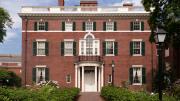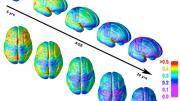In light of the importance of the annual election for members of Harvard’s Board of Overseers—one of the University’s two governing boards—Harvard Magazine asked each nominated candidate to answer these questions:
• What are the most important challenges facing the University—and what are its most significant opportunities?
• What is the Board of Overseers’ role in Harvard’s response to those challenges—and in its efforts to realize those opportunities?
• How do your experiences and interests bear on the prior two questions?
• Why are you standing for election as an Overseer now?
As a service to readers, their answers are presented here, unedited. As of this date, no petitioners have sought a place on the ballot this year, in contrast to 2020 and 2021; these candidates were nominated by the Harvard Alumni Association nominating committee (along with candidates for HAA elected director; the full slates for both sets of positions are available here). There are nine nominees for Overseer, rather than the usual eight, because Tracy K. Smith, elected in 2020, had to relinquish her position on the board upon her appointment to the faculty. The sixth-place finisher in the 2022 election will complete her term. Overseers serve six-year terms.
Balloting is scheduled to begin April and to conclude May 17. (Photographs of the candidates were provided by Harvard Alumni Association.)
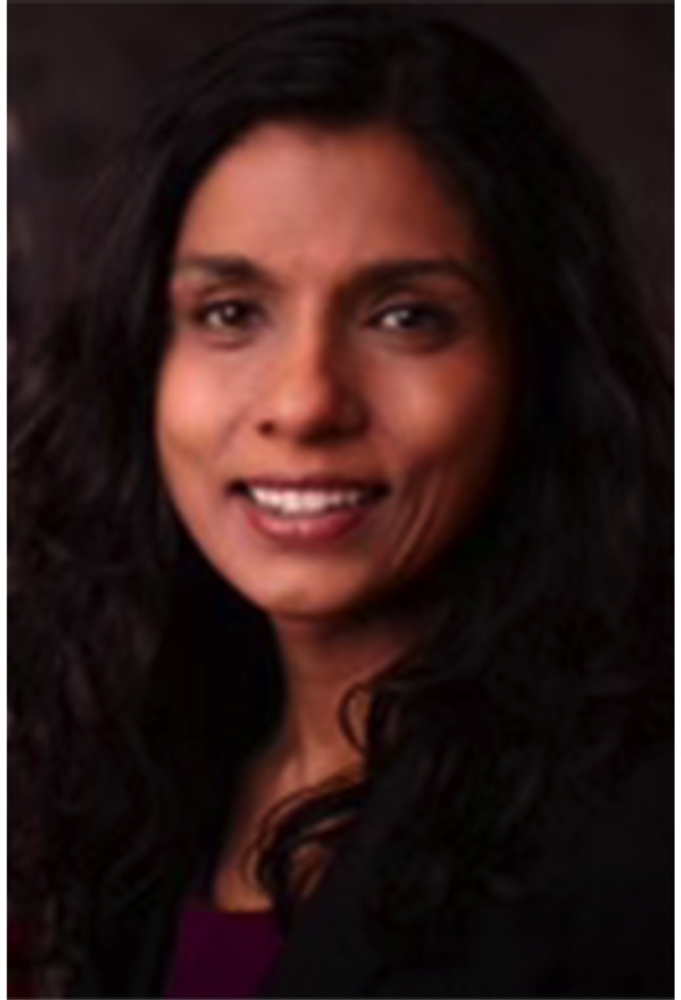
Monica Bharel, M.P.H. ’12, Brookline, Mass., senior adviser to the mayor, City of Boston
What are the most important challenges facing the University—and what are its most significant opportunities?
The last two years have uncovered many of the chasms in our society that Harvard has the resources and ability to help address. The pandemic has tested our political, social, health, economic, and educational systems. It has highlighted the socioeconomic inequities that underlie so many of the pressing issues of our time. Harvard must continue to play a leadership role in understanding and addressing these global challenges.
I was the Commissioner of the Massachusetts Department of Public Health during the COVID-19 pandemic and saw firsthand the lessons and challenges that are informed by our collective experiences. The pandemic uncovered the ways in which our society has failed many of us.
•Health inequities were highlighted that have long led to disparate outcomes based on socioeconomic factors. The pandemic highlighted the fact that addressing these inequities is in everyone’s best interest. We will need research and teaching on the root causes of inequities, racism and institutional bias. We will also need fresh ideas to change the approach to policy and program development and new methods of cross-disciplinary education.
•Our current system of data collection and analysis has failed us during this pandemic. We need enhanced capacity for data collection and integration, machine learning to manage and interpret large amounts of data, and improved nationally integrated data.
•Trust and community engagement are critical in combating misinformation and building solutions that lead to improved outcomes. To create a deep level of trust between the University and communities, we will need true community engagement and diversity of thoughts and experiences at the University.
•Cross disciplinary partnerships are needed to solve our most complex problems. During the pandemic, partnerships between government, academia, private industry, and the community led to the most successful solutions. Universities can play a key part in nurturing and leading these cross-disciplinary opportunities.
These are the challenges of our time and this is the opportunity for Harvard to continue to lead as a global leader in educating our future leaders, researching and investigating, disseminating information, forming and shaping the national and international dialogue on policy, and programming changes based on the needs identified by the pandemic.
The challenge will be to make the findings accessible and applicable to those most impacted by these inequities. The other challenge will be to engage the members of our communities to help define the problems and solutions. Humility to engage in meaningful dialogue should be a priority for academic institutions. The pandemic taught us that communities can be powerful incubators of innovation and collaboration.
What is the Board of Overseers’ role in Harvard’s response to those challenges—and in its efforts to realize those opportunities?
The Board of Overseers plays a critical role in being an intermediary between the University and society at large. I see the role of the Overseers to bring our real-world experience and observations to the University and to assist in making connections to elevate the work of the University in relevant areas.
The Board can provide advice to increase the interconnection between schools, and to increase the practical applicability of the work of Harvard to outside the University.
How do your experiences and interests bear on the prior two questions?
I will bring my direct experiences of leadership during the pandemic to assist in defining the solutions to problems the pandemic has uncovered. I will bring my ability to work in complex systems and across an interdisciplinary system to help Harvard continue to lead in these critical areas.
My experiences in direct medical care, health care systems, academia, state government, city government, policy and programming, homeless services, crisis management, health inequity, and data systems integration and analysis prepare me to assist the University in achieving these goals.
Why are you standing for election as an Overseer now?
Obtaining my masters in public health at Harvard set me on a trajectory in public health. I not only gained access to incredible educators and leaders, but also to all the resources that Harvard has to offer. An entirely new network of thought leaders and innovators opened up to me and helped clarify my role in improving access to healthy living. I have also gained deep satisfaction from teaching HMS and HSPH students and know the potential of these students to address the issues of our time. I want to give back at this time when I have direct experience leading during the pandemic and a clear sense of what we need to do now and how critical the role of Harvard is in this moment in time.
There have been many lessons learned from the pandemic. Some of the issues uncovered have been areas I have been working on my entire professional career. This is a critical moment in time where I see Harvard playing a leading role in shaping our future and cocontributing to how our society moves forward.
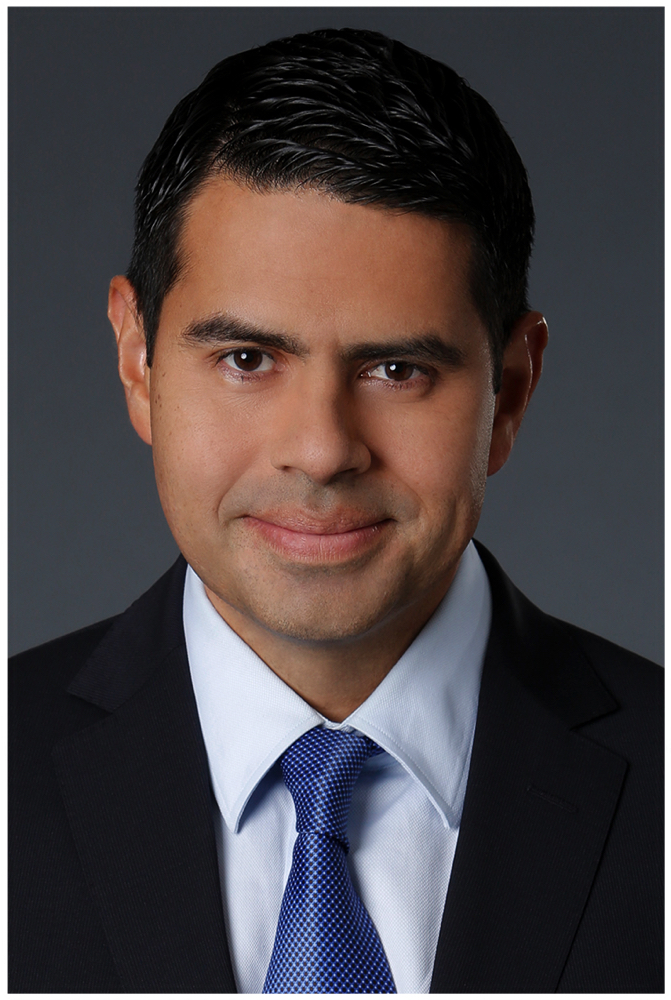
Cesar R. Conde ’95, Miami, chair, NBCUniversal News Group
What are the most important challenges facing the University—and what are its most significant opportunities?
We are blessed to be associated with a University featuring the nation’s largest endowment, an extraordinary faculty, the most diverse student body in our history, and an incredibly influential alumni network. Through its scholarship, its educational and research initiatives, its faculty appointments and its approach towards admissions, the University can help to lead a path toward addressing some of the most complex issues our country is facing.
Like many institutions, Harvard has returned from a remote setting and is working through what the new world will look like when we get through the pandemic. In that new world, we will face an increasingly competitive landscape for attracting the very best students—particularly students of first-generation families such as my own—and faculty members who are not only renowned for their scholarship, but also are inspirational teachers and reflect the broad diversity of our society.
We also live in a time when innovation and technological advances in so many fields—from healthcare to telecommunications—have been accelerating at an exponential rate. Harvard has the opportunity to apply those scientific, engineering and technological advances to make the world a better place, and the Board of Overseers has a unique role in helping the University to achieve that mission.
What is the Board of Overseers’ role in Harvard’s response to these challenges—and in efforts to realize those opportunities?
The Board of Overseers plays a valuable role advising university leadership on strategy and direction. At its best, the Board empowers the President and other senior officials to make decisions informed by the experiences, values and wisdom of the overseers. If elected to the Board, I would commit to helping the University maintain its leadership position and work towards using that position and vast intellectual and other resources to address the most difficult challenges we face.
How do your experiences and interests bear on the prior two questions?
NBCUniversal News Group, the nation’s most watched news organization which I lead, has been navigating through many of the same social challenges, keeping the public informed about vital and complex issues at a crucial time in history, and promoting constructive and informed dialogues.
Throughout my career, I have led large and complex news organizations that have produced the highest quality programming. I have been deeply committed to making investments in new technologies that enable us to reach our viewers through digital platforms. I have also focused extensively on historically disadvantaged groups. Last year, we set a 50 percent challenge, committing to create a workforce whose employees were at least 50 percent of color and 50 percent women. We have created NBCUniversal Academy, a multi-platform journalism training program focusing on partnering with 30 colleges and universities and aimed at providing more equitable access to diverse and marginalized communities that have been historically underrepresented in the news industry. For me, these efforts are very personal.
Why are you standing for election as an Overseer now?
I seek a position on the Board for three reasons. First, Harvard changed my life in profound ways. Second, just as I’ve been blessed by mentors and others who helped to guide me on a successful career path, it is important to me to be able to provide those opportunities for others. Finally, this is an historic moment, both for Harvard and the nation, a time in which all of us need to find ways to make contributions to address the hard issues we are facing in the most meaningful of ways.
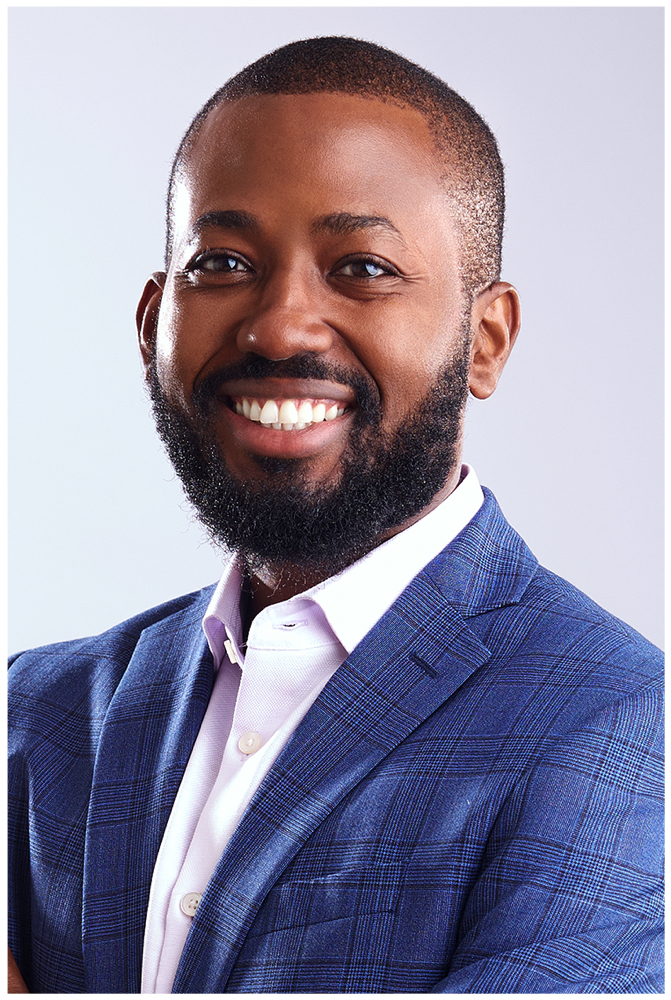
Sangu J. Delle ’10, J.D.-M.B.A. ’16, Accra, Ghana, chief executive officer, Africa Health Holdings Ltd.
What are the most important challenges facing the University—and what are its most significant opportunities?
We are blessed as a University. With an endowment of $53.2 billion, we educate 23,731 students on campus and over 4 million online through HarvardX and grant almost $600 million in financial aid and scholarships. Yet, we are not immune to the many significant challenges facing higher education in the United States and globally. These challenges are also opportunities for us and I’d like to highlight a few of them.
First is the issue of building a more inclusive Harvard community. We have come a long way since 1636 when no student on campus looked like me, or even 1970 when Helen Gilbert became the first woman member of the Board of Overseers. We have made tremendous and commendable progress in diversifying our student body and expanding access. As an interviewer for Harvard College, I am always proud to tell prospective students that their financial needs will not exclude them from admission. But if we are honest with ourselves, we know we still have a lot more work to do. We still need to improve on diversity among our faculty and staff (especially among tenured faculty), our leadership and even our governing bodies. And I mean diversity in the broadest sense—not just with respect to race or gender or sexual orientation, but also geographic, socio-economic and background. The pursuit of Veritas requires that.
Second is around technology and innovation. Ironically, while as an academic institution we are one of the greatest contributors and leaders of cutting-edge technology research, we are laggers when it comes to being consumers of technology. As co-chair of my class reunion, I joked with the development office that if only they would accept Venmo or Bitcoin, I’d probably be able to double our target and participation rates. I believe there is so much opportunity for us to improve our operations and our pedagogy leveraging technology.
Third is around the rising costs of higher education, which has outpaced inflation in the last decade. While we have been fortunate as a University due to our endowment, the reality is that the endowment only covers 39% of our operating budget, and we still need to raise no less than $500 million ever year in current use funds to support the important mission of our University. 18% of our operating budget comes from research. Yet, if we look at NIH funding adjusted for inflation for example, the purchasing power of NIH funding peaked in fiscal year 2003 and then declined for more than a decade. Even with increases every year since fiscal year 2016, fiscal year 2021’s funding is still below that of 2003. I am unapologetic about advocating for increased fundraising and resources for Harvard because I truly believe that a gift to Harvard is one of the most catalytic ways of improving the world. Case in point, my College classmate David Sengeh ’10 who came to Harvard on financial aid and is currently the Minister of Education and Chief Innovation Officer of Sierra Leone. David’s impact is monumental and extraordinary. I want Harvard to continue to have the resources to be able to support more Davids.
Fourth is around meeting the challenges of the future. This is a future that is deeply threatened by climate change, growing inequality and a rapidly evolving global landscape. America’s global dominance is reducing as China emerges strongly as a rival power and as global demographics change. How are we positioned as a University for this future? I believe we are uniquely positioned to lead the world in finding solutions. Our ability to problem solve for the future really lies in what I’ve always believed is one of the greatest strengths and opportunities we have as a University—the breadth of our academic programs. This breadth allows us to pursue multi-disciplinary and inter-disciplinary approaches to problem-solving. I saw this first-hand during my experience as an undergraduate when I joined the Social Engagement Initiative in the Department of African and African American Studies. This initiative, of which I was proudly the first guinea pig, truly shaped my academic experience. Social Engagement weds academic study with practical experience, allowing students to explore and reflect upon on-the-ground applications of their intellectual work. By stepping outside the Ivory tower, we can better understand how and why academic study, ideas, and even technological discoveries are challenged by the lived experiences and cultural prescriptions of communities very different from our own. In my case, I spearheaded a water and sanitation development project in a community called Agyementi in Ghana where the only source of water was infested with E.coli. I worked with a team of professors from Economics, Anthropology, Public Health and Engineering. The most cost-effective intervention would have been the rehabilitation and mechanization of an old abandoned well. However, an anthropological approach required me to spend time with the community and immerse myself in their practices. Through this, I learned that in the 1990s, a young girl with severe mental illness had fallen in the well and drowned. Due to socio-cultural mores, no one would ever drink from that well. By taking a multi-disciplinary approach to solving Agyementi’s water poverty, I was able to develop a solution that worked. I also became increasingly knowledgeable of the interlocking factors of poverty, technological costs, governance, culture, and global redistributive justice. Similarly, we can leverage the breadth of Harvard’s diverse offerings to pursue solutions to many of the pressing challenges we face in the world. But it also requires leadership. We must lead on climate action and on diversity and inclusion and set the gold standard.
What is the Board of Overseers’ role in Harvard’s response to those challenges—and in its efforts to realize those opportunities?
The Board of Overseers is one of Harvard’s two governing boards, along with the President and Fellows, also known as the Corporation. Formally established in 1642, the Board plays an integral role in the governance of the University. While the Overseers purchased the College’s first piece of real estate (the current nucleus of Harvard Yard), they thankfully no longer focus on real estate acquisitions. Instead, as a central part of its work, the Board of Overseers directs the visitation process, which is the primary means for periodic external assessment of Harvard’s Schools and departments. Through its array of standing committees, and the roughly 50 visiting committees that report to them, the Board of Overseers probes the quality of Harvard’s programs and assures that the University remains true to its charter as a place of learning. In addition, the Board of Overseers provides counsel to the University’s leadership on its priorities, plans, and strategic initiatives. The Board also has the power of consent to certain actions such as the election of Corporation members. Thus, I believe that the Board of Overseers has a critical role to play in not just ensuring that our academic programs remain relevant for our mission, but also in advising the University’s leadership on all these critical aforementioned challenges and holding them accountable.
How do your experiences and interests bear on the prior two questions? Why are you standing for election as an Overseer now?
(Combined response to both questions)
When I was five years old growing up in Ghana, I stumbled upon a document in my father's library with “Harvard University” on it. I asked him, "what is university?" He told me “That’s where you go to get smart." I followed up: "and what's Harvard?" "Ohhh" he replied "that's where you go to get REALLY smart." Based on the cartoons I watched on Plato, I imagined Harvard as this place in Greece with pillars and people wearing togas sitting around "getting smart." In what my high school counselor would later call benevolent naivete, I decided I must go to this place to get really smart. So, at age five, I wrote a letter to the "Headmaster" of Harvard expressing this desire. Six or so months later, Neil Rudenstine wrote back. In his letter, I learned 3 things: 1) Harvard is not in Greece, but in some place called Cambridge, MA; 2) His title is President and not Headmaster; and 3) age 5 is too young for Harvard. It was a very kind letter and he encouraged me to keep in touch. (I would later meet him in person for the first time in February 2020 at the 50th anniversary of Harvard's Department of African and African American Studies). This started my Harvard love story.
In a story I have shared in the past, a European ambassador in Ghana told me I was "foolish" for daring to dream of going to Harvard ("it's impossible to get in, not even my daughter will bother" he told me). He meant well and offered to help me get into good schools in Europe. Fast forward and I had the great opportunity and blessing to attend The Peddie School on a full scholarship. I applied to Harvard College under the Early Action Program in 2005. I'll never forget December 14th, 2005. At 10:16pm GMT, I received my offer of admission and a full scholarship from Harvard. I cried all night. After 14 years, the dream of a young and "foolish" African boy became reality. I later pursued graduate studies at Harvard Business School and Harvard Law School as a Soros Fellow. Harvard completely changed my life. It inspired me to believe in my dreams and to pursue the socio-economic transformation of Africa, my continent that I love so deeply and dearly.
Filled with immense gratitude for the countless gifts Harvard gave me, I have always felt a moral obligation to give back and to pay it forward. Harvard is a major priority in my personal philanthropy, and I have supported financial aid, research on Africa, mental health, and other important causes at the University. I have volunteered with Alumni Affairs and Development, helping to raise funds for financial aid. I served as Chair of my reunions at the College, the Business School, and the Law School. I co-founded the Harvard Club of Ghana and helped launched the Harvard Book Prize and the INSPIRE program in-country. I fought to establish and now chair Harvard College Interviews in Ghana. I volunteer on several boards at Harvard including the Harvard Center for African Studies Leadership Council, the Harvard Business School Fund Council, the Harvard Medical School Dean's Advisory Council on Global Health, and the Joint Committee on Alumni Affairs and Development. In addition, from 2017-2020, I was humbled to have been elected by the alumni and to serve as an Elected Director of the Harvard Alumni Association.
When I was contacted by Harvard about my nomination for the Board of Overseers, I was surprised. I remain humbled, honored, and deeply moved by the nominating committee's consideration of my candidacy. At the same time, I am beyond excited for the opportunity to give back to my beloved alma mater in this capacity. Harvard has always been a global institution which reflects our international community: 24% of Harvard students are international from over 180 countries and over 69,000 Harvard alumni live abroad. Yet this rich global diversity isn’t reflected on the Board of Overseers, which presently has only 3 members outside the United States. If elected, I will be the only African representative on the 30-member board and I can't wait to represent our international alumni on this board. Serving Harvard remains one of the greatest privileges of my lifetime and it would be a deep honor to help contribute towards building a greater, stronger, and more inclusive University.
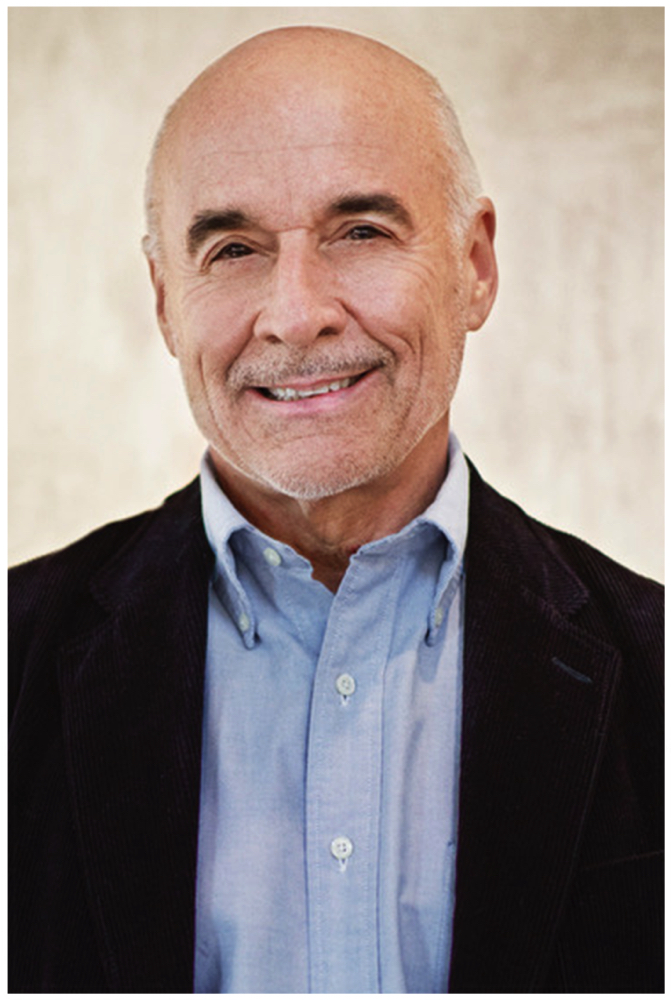
Scott Mead ’77, London, photographer
What are the most important challenges facing the university—and what are its most significant opportunities?
Harvard faces many challenges in defining and meeting its multiple missions both within the University and in the world beyond.
One critical mission is to provide rigorous thought, clear leadership and decisive action on many of the world’s current and future key issues and debates. Harvard must also challenge itself to evaluate, adapt and evolve in a rapidly changing world driven by technology and the rise of artificial intelligence, political and social polarization, and global threats to basic human liberties. All these trends are occurring in the context of increasing inequality, a global pandemic and the ongoing threat of climate change. These complex, interconnected issues underscore Harvard’s absolute need to further broaden access from all elements of society and all areas of the world. The world’s most accomplished and impactful students and scholars should be at Harvard.
Harvard also has the challenge, the opportunity, and the responsibility to encourage every student and faculty member to engage deeply in these ethical and philosophical debates, to find meaningful and accessible creative outlets for inner thoughts, ideas and visions, and to provide the teaching and facilities for all this to happen in the most positive and productive ways.
What is the Board of Overseers’ role in Harvard’s response to these challenges—and in its efforts to realize those opportunities?
The Board of Overseers plays a critical role in bringing an independent, broad, strategic and considered perspective to the process of oversight and governance across all of Harvard. The Overseers must help to ensure transparency, open debate and meaningful and positive evolution and change.
The Overseers serve as a broad and committed resource to support Harvard, its faculty, students and staff to meet their many missions as effectively as possible. Through the visitation process across all areas of the University, the Overseers have the opportunity to engage deeply in debate, process and planning.
In this role, the Overseers have the responsibility to provide perspective and constructive discussion on whether the status quo or proposed changes are in fact the best and most effective way forward. Through this process and many less formal and ongoing ways of support and advice, the Overseers are central to helping Harvard identify and respond to its many challenges and maximize the opportunities for change which often flow from them.
How do your experiences and interests bear on the prior two questions?
I have long been involved with Harvard through visiting committees, Deans’ Advisory Boards (the Law and Design Schools), a term as an elected Harvard Alumni Association director and numerous other roles. In addition, I have “experienced” Harvard through the eyes of four of my children as well as their classmates. Therefore, I feel I have a deep sense of Harvard and the challenges and opportunities it faces on many levels.
Since my graduation from Harvard, I have lived and worked for decades in Europe and Asia. Many issues and opportunities before the Board of Overseers will benefit from an international perspective, input or consideration. In addition, through my experience over many years on numerous arts and educational boards and advisory boards in the U.S. and internationally, I have a good sense of how these groups operate to effectively evaluate and create change in important and often challenging areas, sometimes requiring difficult choices.
I have been an active and serious photographer since the age of 13 and full-time for the past 15 years, working from Bramley Studio, a creative hub I established to incubate and support a broad global group of young and diverse artists as well as provide outreach to promising students from local schools. During the pandemic, Bramley Studio has been able to make an even more important difference as many artists found their opportunities and platforms for creative expression had largely vanished.
As a practicing artist, I have had numerous exhibitions, published several books and created work that is in many collections around the world, including hanging at Harvard in the Law, Business and Kennedy Schools. In addition, I have served on many major arts and educational boards and created many arts initiatives throughout the world. I will bring this professional experience to bear as the Overseers deliberate on important arts, humanities and cultural decisions regarding faculty, facilities, courses and research.
I am hoping to bring my broad personal, professional and life experiences in the arts, my international perspective from decades of living and working in Europe and Asia, and my deep knowledge of and commitment to Harvard to help the identify and meet the many challenges before it. In this context, I am also hoping to broaden Harvard’s global reach and access and provide experienced and thoughtful input to the Overseers and the broader Harvard Community.
Why are you standing as an overseer now?
I was the first member of my family to attend Harvard and it opened up unimaginable opportunities for which I am deeply grateful. I spent a large amount of time in my early years in Erie, Pennsylvania, a small, former industrial town that has been buffeted by the forces of change and where my first job was carrying my journalist grandfather’s cameras and film on photo shoots and assignments.
Harvard exposed me to an extraordinarily diverse group of students, professors, coaches and an incredibly broad debate and dialogue on fundamental, enduring and evolving ideas and issues. Many of my life and career assumptions were challenged in the most positive ways, and I was often out of my comfort zone. This was a valuable and at times difficult experience, but one which I believe can be an important part of anyone’s time at Harvard and certainly was for me.
Whether studying with renowned photographer William Eggleston, historian David Donald and many other truly inspiring professors, spending untold hours in the Carpenter Center darkrooms, the Harvard Advocate or in athletic facilities with outstanding coaches, my life was intensely broadened on a daily basis. Friendships with student and faculty contemporaries have continued to this day, sharing life experiences and perspectives along the way.
Over the years, Harvard has made, and continues to make a major impact on my life experience. Among many other examples, my intense immersion in photography at Harvard provided the basis for my work after graduation and my full-time return to it years later. Since graduation, I have had a deep and lifelong engagement with Harvard which has encompassed numerous areas of the University and its faculty and students.
Should I be elected as an Overseer, I hope to give back further to Harvard and make even more of a positive difference to the University and its multiple missions by bringing my extensive life, artistic, professional and international perspective to bear in deeply committed and energetic ways.
I strongly believe art and humanities play an increasingly important and central role in society. Creativity and its artistic expression are powerful tools for highlighting social, climate and economic challenges and helping implement positive change.
As we consider and confront the key ethical, philosophical and political issues before us, intense engagement and opportunities to study these subjects are critical and central elements in Harvard’s mission. Arts and humanities need even broader and deeper voices on the Overseers, and should I be elected, I will work to be among those voices in the most positive and committed ways I can.
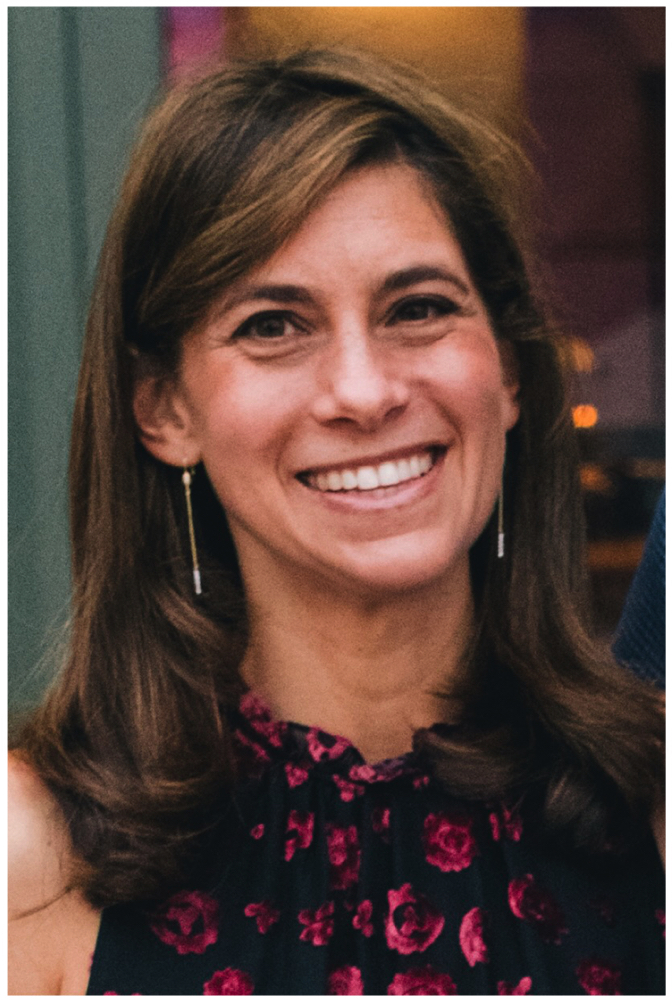
Lauren Ancel Meyers ’95, Austin, professor, departments of integrative biology and statistics & data sciences, University of Texas at Austin; director, UT COVID-19 Modeling Consortium
What are the most important challenges facing the University—and what are its most significant opportunities?
Harvard is a pioneer in higher education, continually blazing bold paths in research, education, and service that other universities emulate. Harvard is also an engine for progress, through the cultivation of graduates who embark from campus with confidence and purpose. With the advent of online learning and virtual certificates, higher education is facing an identity crisis. Yet, universities have never been more vital than today, as we struggle to heal our fractured communities, plan for a highly uncertain future, and harness increasingly powerful technology. I believe that Harvard has already begun to lead a radical transformation in the identity and impact of higher education, and I would gladly devote my time, heart, and expertise to advance this effort.
What is the Board of Overseers’ role in Harvard’s response to these challenges—and in its efforts to realize those opportunities?
The big question is, how do we integrate technology, experimentation, open discourse, service, and diverse disciplines into a four-year education to prepare the next generation to solve complex problems and ensure a sustainable future? Harvard has the platform, resources, and culture to lead the globe in innovating a new paradigm for undergraduate education. As Harvard ventures into these uncharted waters, its Board of Overseers will serve as a vital sounding board and source of extraordinary cross-cutting expertise.
I have spent the last 18 years working as a professor at the University of Texas at Austin—one of the largest public flagship universities in the country. Between 2007 and 2014, I built UT’s Department of Data Science from scratch—including hiring its first eight faculty, creating a Ph.D. program, developing dozens of courses, and serving as its first chair. I have served on the executive committee of UT’s faculty council, as the faculty representative on UT’s Budget Council, and as chair of two major strategic planning initiatives commissioned by UT’s President. Today, as director of the UT COVID-19 Modeling Consortium, I lead dozens of researchers from multiple institutions, raise millions of dollars, and provide critical COVID guidance for the WHO, CDC, and policymakers worldwide.
Throughout my career as a pandemic scientist, I have had the opportunity to put my values and skills to public use. Working closely with public health agencies and policymakers, I design equitable and effective strategies for combating outbreaks. And, as a teacher, I aspire to nurture the next generation of scientists, citizens, and leaders. I believe that collaboration is the key to tackling our biggest societal challenges and am passionate about breaking down barriers between scholars, communities, and decision makers that stand in the way of societal advancement and global well-being.
As a member of the Harvard Board of Overseers, I would draw on these professional experiences and my commitment to ensuring our nation’s universities equip and empower the future leaders of our increasingly digital world, effectively and ethically.
As we emerge from a catastrophic pandemic and face rising societal divisiveness and existential environmental threats, we need to ensure that the college students of today have the knowledge, skills, and understanding they need for tomorrow. I think about these issues deeply and would be grateful for the opportunity to support Harvard in tackling this grand challenge.
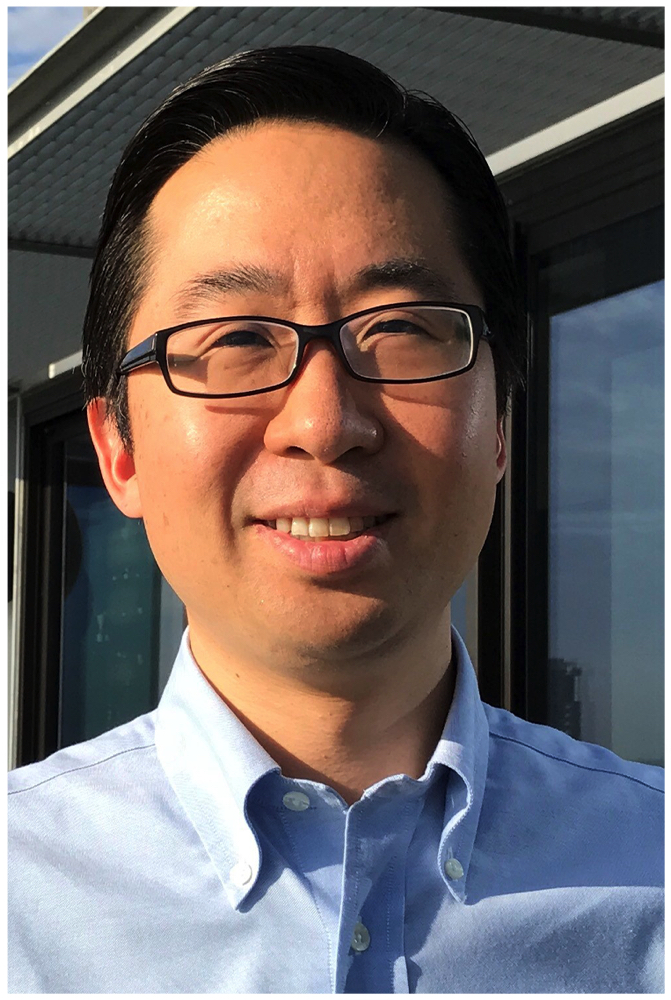
Todd Y. Park ’94, Los Altos Hills, California, co-founder and executive chair, Devoted Health
What are the most important challenges facing the University—and what are its most significant opportunities?
We live in a time of profound challenge on fronts ranging from the health of our people to the health of our planet. At the same time, this is a moment of great possibility, embodied by the inspirational work of changemakers across the globe. In this pivotal moment, Harvard can and should be a leading source of change agents, across sectors, who have the skills, mindset, and character to make meaningful contributions of all kinds, everywhere.
The work that Harvard needs to continue to do to enable it to be the best possible developer and supporter of changemakers mirrors broader challenges and opportunities of society as a whole:
- Advancing diversity and inclusion throughout the institution and its ecosystem
- Becoming a model for open, civil discourse
- Supporting the development of not just the mind but also the heart, as the quality of the best changemakers is defined most of all by the content of their character
- Driving technological and scientific innovation while simultaneously thinking equally deeply about how this innovation can generate maximum true benefit for all
- Harnessing the power of not only individual disciplines but also the combination of them – pioneering interdisciplinary approaches to problem solving and opportunity generation
- Engaging deeply in the most pressing and important issues of our time—from fighting the pandemic to combating climate change, from creating opportunity for all to strengthening democracy around the globe—with open hearts, a continuous learning mindset, and a collaborative spirit.
Harvard’s succeeding to the greatest degree in each of these dimensions and at the intersection of them will mean that Harvard will have the greatest possible impact on the world for the better.
What is the Board of Overseers’ role in Harvard’s response to those challenges—and in its efforts to realize those opportunities?
Through its work directing the visitation process that assesses Harvard’s schools and departments and via its provision of advice and counsel to the University’s leadership, the Board of Overseers plays a crucial role in helping the University realize its fullest potential. The Board should be a source of vital oversight of and partnership with University leadership. It should pressure-test leadership’s thinking, ask key questions and be willing to dive into difficult issues, bring fresh perspectives to bear, and help to change the arc of the University for the better.
How do your experiences and interests bear on the prior two questions?
As someone who has deep changemaking experience across the private and public sectors, from building innovative health care technology companies to serving as U.S. Chief Technology Officer in the White House of President Barack Obama, J.D. ’91, working with truly remarkable teammates every step along the way, I hope that I can be a useful source of insight regarding how Harvard can help develop and support change agents.
And for Harvard to be most successful in its work, Harvard itself will need to continue to evolve—efforts which can be quite complex and difficult, and in service of which my changemaking experience can also be helpful.
From my work with and service on boards, I understand that the optimal board is neither a “rubber stamp” for management nor a group that tries to do management’s job, but is rather an overseer and partner which, if it does its job well, is essential to helping an organization become all that it can and should be. It would be a true honor and privilege to help Harvard do so.
Why are you standing for election as an Overseer now?
In this moment of profound global challenge and opportunity, I would love to apply all that I’ve learned toward working with the Harvard community to build on everything that makes Harvard extraordinary and help the University innovate to achieve an ever greater level of beneficial impact on the lives of its students and on the world.
And as the child of Korean immigrants who came to the United States with virtually nothing, who still vividly remembers seeing Harvard Yard for the first time, who met the love of my life, Amy Geng ’94, and my spirit-brothers, Roberto Busó-García ’94, David Joerg ’94, Michael Puri ’96, and Michael Rosenbaum ’94, in Canaday B, and whose life arc (along with that of my beloved brother, Ed Park ’97) was profoundly altered for the better by my Harvard experience, I would love to be of service to the University that changed my life, and help it continue to change the lives of others for generations to come.
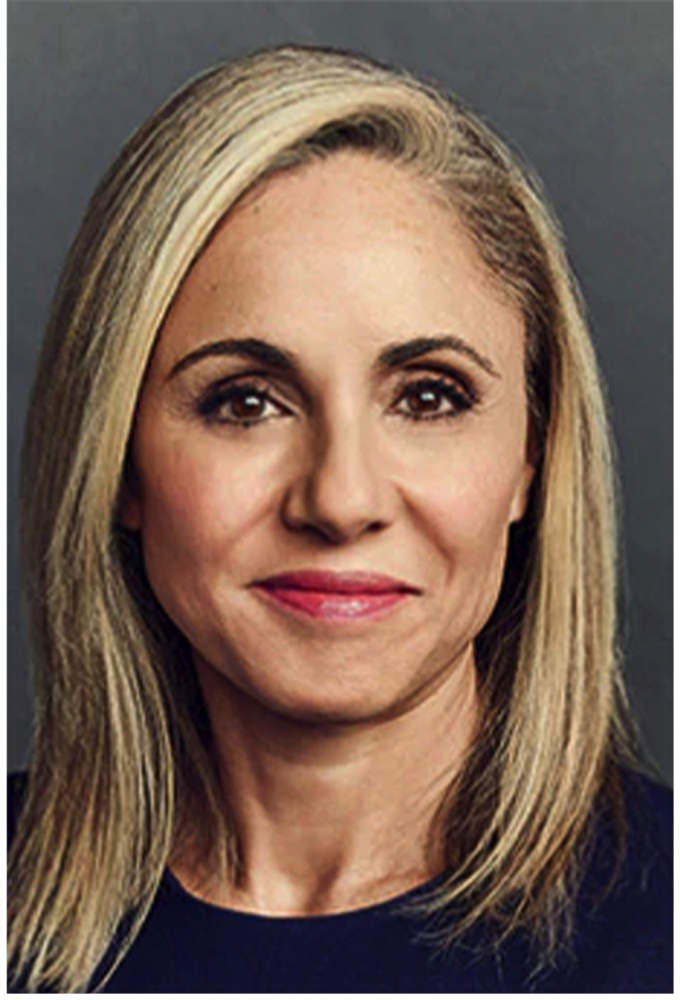
Kim M. Rivera, J.D. ’94, Portola Valley, Calif., former special adviser to the CEO, HP Inc.
What are the most important challenges facing the University—and what are its most significant opportunities?
We face a wide range of pressing problems including climate change, social and racial inequity, a crisis of misinformation and mistrust, the staggering pace and inequities of technological change, political polarization, geopolitical instability and a continuing worldwide pandemic. There is also a wide range of ideas and opinions about how Harvard should address these problems. The University must discern what changes are most urgently needed and how to implement those changes at an effective pace. This is both the biggest challenge and the biggest opportunity.
Meeting this challenge requires passionate and engaged members of Harvard’s community to ask as difficult questions, challenge traditional approaches, and listen to a variety of perspectives. We must have the courage to push for clarity on the values that matter and transparency about the University’s decision making. How do you build and sustain a diverse and inclusive community? How do you foster productive discourse and collaborative problem-solving on contentious issues? How do you cultivate individual and institutional adaptability and resilience? How do you ensure world class expertise is combined with the compassion and perspective required to establish and maintain trust?
These are some of the important questions that Harvard must tackle to effectively educate, prepare, and inspire diverse leaders for a lifetime of public engagement. Forging a path for future success requires pedagogical and leadership innovation. It requires an inclusive process and participants that embrace disruptive, non-traditional ways of thinking.
What is the Board of Overseers’ role in Harvard’s response to those challenges—and in its efforts to realize those opportunities?
The Board of Overseers’ overarching role is to advise and guide University leadership on how to carry out Harvard’s mission to promote new ideas and advance enduring knowledge. The Board must be willing to ask difficult questions. It must engage directly with and listen intently to students, faculty, administrators, the visiting committees and fellow alumni. The benefit of this process is that it allows the Board of Overseers to use the full breadth of its members’ experiences and judgment in providing recommendations to University leadership.
How do your experiences and interests bear on the prior two questions?
I believe to my core that education is key to unlocking opportunity, promoting innovation, and driving change. My community engagement and career have given me a direct perspective on the opportunities and challenges that organizations face in fostering change to drive social and economic inclusion. Through my board service with organizations that include The Latino Community Foundation, The Denver Metro Hispanic Chamber of Commerce, and The Leadership Counsel on Legal Diversity, I have had an opportunity to see the power of the vast untapped resources and talent in underrepresented communities. My service as a Senior Fellow and board member of the Silicon Valley chapter of the American Leadership Forum (ALF), an organization dedicated to the development of diverse and inclusive community leaders to serve the common good, has amplified this experience.
In my twenty-eight-year career spanning Fortune 500 C-Suites and corporate board rooms across multiple industries, I have made it my mission to use my voice and experience to fight inequity and promote meaningful dialogue. I have been at the forefront of fighting for the inclusion of women and underrepresented minorities in technology and corporate settings. I have been humbled by the recognition I have received as a thought leader and innovator for my work in these areas. I’ve also seen the powerful innovation and results that diverse and inclusive teams can deliver. From this experience, I know that strong leadership values inclusion and difficult dialogue. I am prepared to share this experience and leadership with the Board.
Why are you standing for election as an Overseer now?
I know first-hand the challenge that socially and financially disadvantaged students face before, during, and after a Harvard education. When I came to Harvard in 1991, I came as an orphan, without financial or family resources and with a younger sister I was raising. I came having left a military dictatorship in Paraguay and a culture that did not promote social, economic, or professional equity for women or the poor. I did not arrive with the same context, quality of information, or resources that some of my fellow students enjoyed. But my background and experience gave me the resilience, work ethic, and determination to succeed. Harvard gave me both an uncompromising challenge and a community of smart, talented, and equally determined people to grow with. I wish I could say that I am unique—but there are many talented, smart, deserving people who need only the opportunity that I got to prove what they can contribute to their broader community. This is why, along with fellow Latino alumni, I helped establish a scholarship for Latino law students. The education I received at Harvard and the relationships I forged there gave me access to experiences that I could not have imagined when I first arrived. I am committed to paying this forward by creating opportunity and expanding future possibilities for others. The time to create those future possibilities is now.
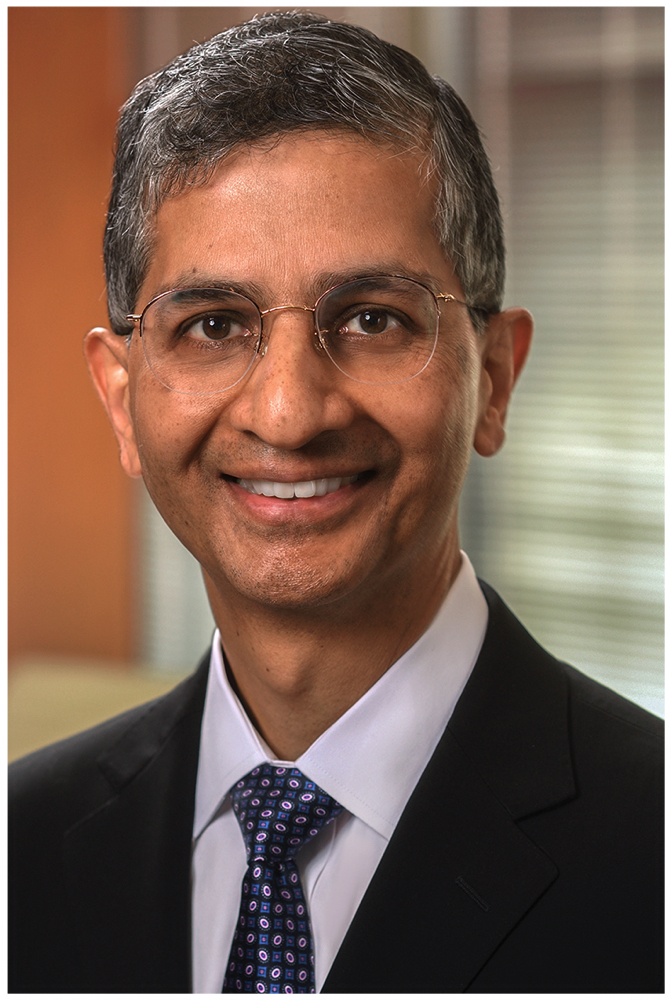
Vikas P. Sukhatme, M.D. ’79, Atlanta, dean, Emory University School of Medicine
What are the most important challenges facing the University—and what are its most significant opportunities?
Challenges facing Harvard fall into three categories: those facing the world, those facing institutions of higher education and those that might be unique to Harvard.
In the first category, I feel that Harvard—with its amazing resources, people and brand—should address the most pressing problems of society. These include global inequality and poverty; affordable, accessible and quality healthcare; the promise and perils of AI; tolerance and civil debate; cybersecurity; terrorism; racial justice and climate change to name a few. These problems require interdisciplinary efforts and Harvard should create venues to convene individuals and institutions with orthogonal expertise to define and solve them. Also, creating safe “spaces” for civil debate and airing of potential solutions will be critical for such an effort to succeed.
General challenges to higher education include: making a compelling case detailing the value of institutions of higher education to society (e.g. as bastions of reason, truth, transparency and tolerance); finding the right balance between the foundational and the practical in education and in research; defining a post-covid world (e.g. best use of technology, workplace of the future); and educating for adapting to rapid change.
Perhaps somewhat unique to Harvard, the University needs to address issues of elitism. It needs to ensure equitable access to its resources through recruitment, promotion, retention and engagement with faculty, staff and learners of diverse backgrounds. Harvard has a special role to play: to speak for the least heard voices in society.
What is the Board of Overseers’ role in Harvard’s response to those challenges—and in its efforts to realize those opportunities?
The Board should subscribe to the adage that “the best way to predict the future is to create it.” Thus its role is to relentlessly, but respectfully, challenge the status quo at Harvard, to look around the corner, ensuring that Harvard’s best days lie ahead. This can be done in numerous ways: by posing tough questions and encouraging dialogue (e.g. as part of its visitation program), convening the right parties (people and institutions), ensuring that Harvard’s departments, institutes, centers, programs and overall resources are aligned with a shared and well-communicated vision and seeing that culture and incentives are aligned for its faculty, staff and learners to execute on that plan.
How do your experiences and interests bear on the prior two questions?
In describing myself, I will paraphrase from the introduction to the autobiography of Bertrand Russell: I am motivated by a deep desire for knowledge and am passionate about alleviating suffering from disease. I particularly enjoy coming up with medical insights gleaned from “connecting the dots” from different disciplines, to use Steve Jobs’s words.
I would characterize myself as a quick study, eager to learn from anyone, anytime and anywhere. I value humility, meritocracy, boldness, openness, passion, excellence, a willingness to think outside of the box, collaborating with those with experiences different from mine and—to the extent possible—a “quantified” view of the world.
Having lived and travelled extensively, I view myself as a citizen of the world, Indian born (now naturalized U.S. citizen), raised in Rome. I have had the good fortune of being educated at or to serve on the faculty of some of America’s most prestigious institutions of higher learning (MIT, Harvard, Stanford, University of Chicago and Emory). I am an academician—through and through—with a doctorate in physics, followed by a career as a physician-scientist both at the bench and in the clinic. I have entrepreneurial interests having started several biotech companies and a non-profit focused on clinical development of ideas that lack financial incentives. The latter has exposed me to the workings of the FDA, CMS, NIH, and others and acquainted me to workings of the public sector.
Collectively, the breadth of my experience in research, education, clinical care, administration and entrepreneurship will—I believe—enable me to contribute effectively to the Board of Overseers as it addresses challenges and opportunities for Harvard.
Why are you standing for election as an Overseer now?
The power of education to create a more equitable world was imprinted on me at an early age: education lifted my family out of poverty.
Now, it is simply time to give back.
I believe I have been “around the block” a few times—seasoned but not jaded—and can bring a unique perspective to the Board through the diversity of activities I have been engaged in. I have thoroughly enjoyed my thirty-year association with Harvard, as a student, fellow, faculty member, chaired professor and administrator. My ongoing role as dean of the school of medicine at Emory has further enlarged by perspective in many dimensions.
I am excited to work with the Board, especially given its eclectic composition. It would be an incredible honor to work with such colleagues and with Harvard faculty, alumni, students, staff, and leaders, to collectively help shape the future of Harvard and the world.
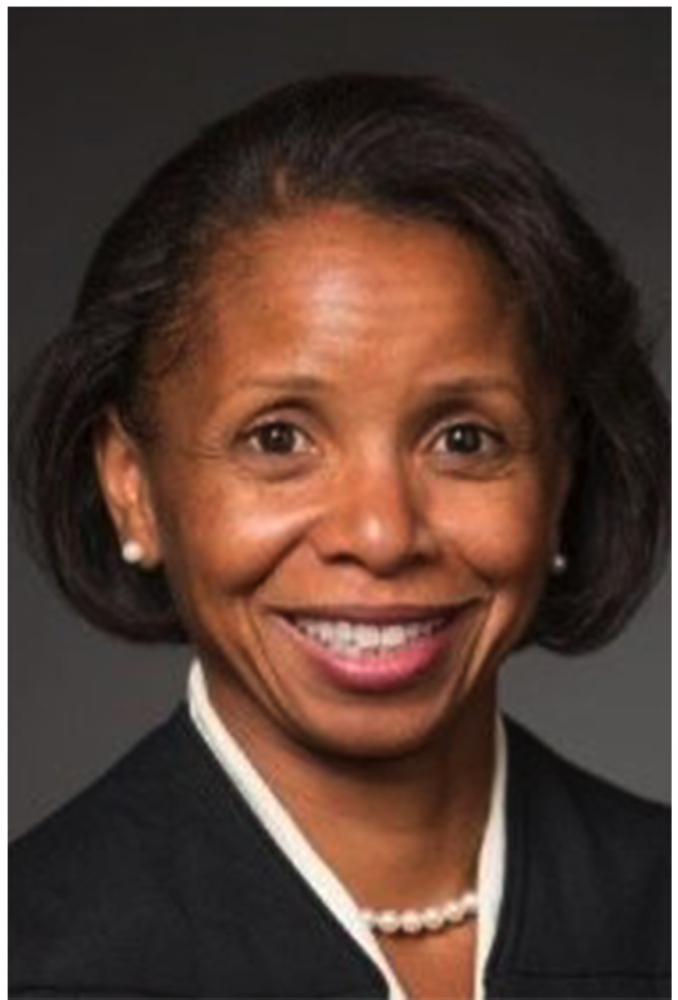
The Hon. Wilhelmina “Mimi” Wright, J.D. ’89, St. Paul, United States District Judge, District of Minnesota
What are the most important challenges facing the University—and what are its most significant opportunities?
The most important challenges facing the University include ensuring that Harvard University continues to excel in providing exceptional educational opportunities through teaching, scholarship, and intellectual engagement addressing the most compelling challenges that society confronts. This requires an academic community that attracts and supports a demographically diverse student body whose members seek academic rigor and respect diversity of thought, an ambitious and engaged faculty committed to confronting challenges that will provide significant social and scientific advancement within Harvard’s community and the world beyond, and robust administrative leadership that fosters open inquiry and collaboration among faculty, students, and staff. In doing so, Harvard must practice stewardship in a manner that builds on its legacy as an inspiring leader among academic institutions through innovation and its commitment to academic freedom.
What is the Board of Overseers’ role in Harvard’s response to these challenges—and in its efforts to realize those opportunities?
The Board of Overseers’ role is to assist in harnessing resources, including collective experience and expertise, and offering strategic insight that will support the academic, institutional, and fiscal goals of the University.
How do your experiences and interests bear on the prior two questions?
I “grew up” on the college campus where my parents, the first in their respective families to attend college, were professors. As it was a historically Black college in Virginia, I observed at an early age the transformative power of a college education and the many sacrifices that parents and communities made to provide their daughters and sons with an opportunity that would change their trajectory in life. Having received my higher education at two of the finest academic institutions in the world, I am personally committed to supporting educational opportunities for others. In my past experience as an attorney at Hogan & Hartson, LLP, now Hogan Lovells, I represented public school districts and private colleges and universities. While the role of an Overseer is different than providing legal counsel and advocacy, I believe that my professional experience would contribute a useful perspective to the important work of the Board of Overseers.
Why are you standing for election as an Overseer now?
The uniquely challenging and rewarding professional experiences that I have enjoyed are directly attributable to the education that I received at Harvard. I have an enduring interest and commitment to fostering access to the transformative power of higher education. Serving Harvard University as a member of the Board of Overseers would be a rewarding opportunity to assist in advancing that mission for the benefit of others.
